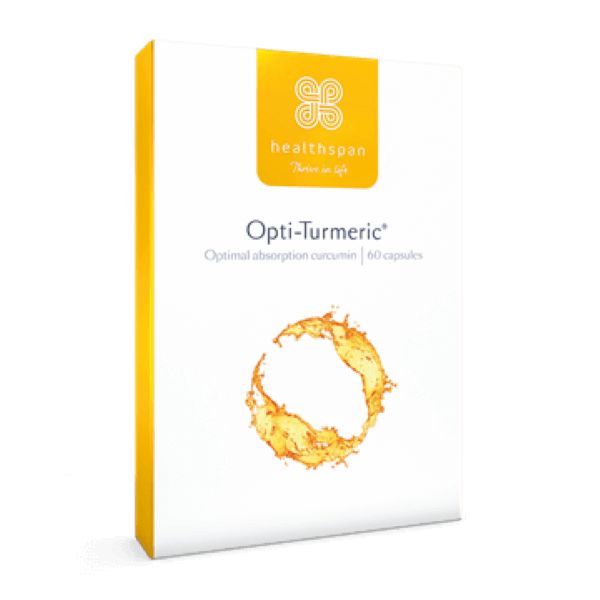A spice used in most curries could be the ingredient you need to relieve stiff and swollen joints. Here's what the science says about the root known as 'the golden spice.'
🕒 3 min read
It has proven anti-inflammatory properties
Turmeric has long been recognised as having medicinal qualities, and the active ingredient within – curcumin (curcuma longa) – has proven health benefits and anti-inflammatory properties that have been shown to help dampen down and modify the body's inflammatory response.
A range of studies have demonstrated the beneficial effects of curcumin on those suffering with inflammatory conditions, including those affecting the joints.
Typically, prescribed treatment for these conditions is a combination of exercise, lifestyle changes and drugs such as ibuprofen, but the use of such drugs long-term is associated with side effects.
In clinical trials curcumin was found to be as effective at reducing joint swelling, pain and stiffness, and increasing walking ability, as prescribed drugs for those with RA (an autoimmune condition where the body attacks healthy joint tissue.)
A 2017 study, involving 36 people with RA given either a 250mg or 500mg dose of turmeric or a placebo twice a day for 90 days, revealed the group taking the turmeric/curcumin reported significant improvement in inflammation when compared to the placebo group.
It has known antioxidant effects
Researchers suspect that some of the inflammation in joints may be related to free radical action in the body. Free radicals are rogue molecules that cause oxidative stress (think of this as the process whereby an apple goes brown or metal rusts.)
Oxidative stress is linked to inflammation and is said to be a key driver of joint conditions. Antioxidant foods such as turmeric are known to help to neutralise free radicals.
It appears to work as effectively as a known painkiller
In a 2019 study, 139 people with knee problems were given either a 50mg twice-daily dose of the painkiller diclofenac, or 500mg of turmeric three times daily, for a month.
Both treatments relieved the symptoms of swollen joints to a similar degree but, crucially, the participants taking the turmeric reported fewer side effects and no digestive issues at all.
On the other hand, nearly 30 per cent of the group given diclofenac reported gastrointestinal issues.
It could help reduce your weight and the pressure on your joints
In the knee study, the group taking the turmeric lost on average two per cent of their bodyweight in just four weeks. That's around 3.5lbs for someone weighing around 12 and a half stone.
The trial was not about the effects of turmeric on weight – this was a side-effect of taking it – but we know that joint problems are exacerbated by being overweight, as it puts added pressure on the joints.
Another reason to keep your weight down is that cortisone injections that might be given to relieve knee problems may be less effective in those who are obese.
Turmeric can be used fresh as a root (a bit like ginger) in cooking, or as a spice powder.
However, despite its obvious benefits in a range of joint problems, the downside of curcumin is that it is notoriously badly absorbed by the body.
There have been a range of experiments to try to ascertain how to make curcumin more bioavailable, including combining it with piperine (an active ingredient found in black pepper), which appears to be effective.
There are also advanced supplement formulations that use liquid turmeric to increase how much is taken up by the body.
How much to take
There is no official recommended dose for turmeric in the UK, but in most of the joint problems trials participants were given a daily dose of up to 1,000mg (generally as two 500mg divided doses) in a supplement.

Opti-Turmeric
7 times faster-acting than standard turmeric
- Advanced liquid curcumin capsules
- Faster-acting and better absorbed than standard turmeric
- 500mg turmeric per capsule






